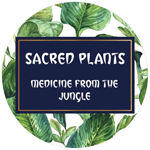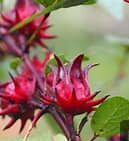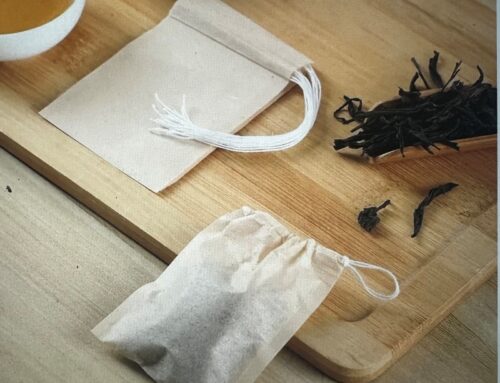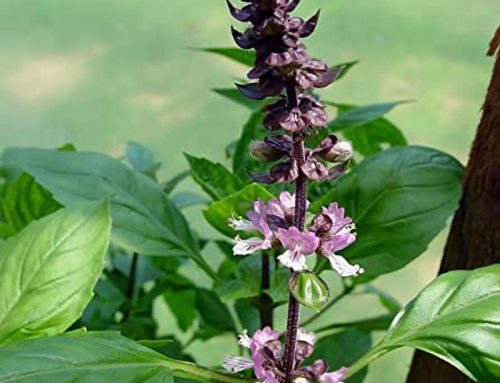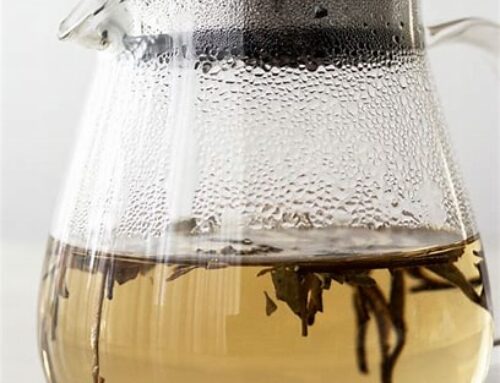Hibiscus is high in antioxidants and offers many potential benefits. In particular, it may help promote weight loss, reduce the growth of bacteria and cancer cells, and support the health of the heart and liver.
Flor de Jamaica tea health benefits, include:
- Powerful antioxidant that reduces oxidative stress
- Effective anti-cancer agent
- Eliminates kidney stones
- Promotes good health in diabetics
- Prevents and combats metabolic syndrome
- Cleanses the liver
- Helps in weight loss
- Lowers blood pressure and cholesterol
- Boosts the immune system
- Detoxifies the body
Aside from potentially offering a multitude of health benefits, hibiscus tea is delicious and easy to prepare at home.
Simply add dried hibiscus flowers to a teapot and pour boiling water over them. Let it steep for 5 minutes, and then strain, sweeten if desired, and enjoy.
Hibiscus tea can be consumed hot or cold and has a tart taste similar to that of cranberries. For this reason, it is often sweetened with honey or flavored with a squeeze of lime juice to balance the tartness.
Antioxidants are molecules that help protect against compounds called free radicals, which can damage your cells (Trusted Source).
Hibiscus is rich in powerful antioxidants and may therefore help prevent damage and disease caused by the buildup of free radicals.
One study in people with Marfan syndrome, a disorder that affects connective tissue, found that an infusion of hibiscus extract reduced oxidative stress and increased antioxidant levels in the blood (Trusted Source).
An animal study had similar findings, showing that hibiscus extract helped protect against cell damage in rats (Trusted Source).
One of the most impressive and well-known benefits of hibiscus tea is that it may help lower blood pressure.
Over time, high blood pressure can place extra strain on the heart and cause it to weaken. High blood pressure is also associated with an increased risk of heart disease (Trusted Source).
Several studies have found that hibiscus tea may lower both systolic and diastolic blood pressure.
In one small study, 46 people with high blood pressure consumed either hibiscus tea or a placebo. After 1 month, those who drank hibiscus tea had a greater decrease in systolic and diastolic blood pressure than those who took the placebo (Trusted Source).
Similarly, a 2015 review of five studies found that hibiscus tea decreased systolic and diastolic blood pressure by an average of 7.58 millimeters of mercury (mm Hg) and 3.53 mmHg, respectively (Trusted Source).
While hibiscus tea may be a safe and natural way to help lower blood pressure, it is not recommended for those who are taking medications to treat high blood pressure, as it may interact with these drugs.
In addition to lowering blood pressure, some studies have found that hibiscus tea may help improve blood fat levels, which can be another risk factor for heart disease (Trusted Source).
In a small 2009 study, 60 people with diabetes consumed either hibiscus tea or black tea. After 1 month, those who drank hibiscus tea had increased levels of HDL (good) cholesterol and decreased levels of total cholesterol, LDL (bad) cholesterol, and triglycerides (Trusted Source).
Another older study in people with metabolic syndrome found that taking 100 milligrams of hibiscus extract daily was associated with decreased total cholesterol and increased HDL cholesterol (Trusted Source).
A 2022 review found that hibiscus tea could reduce levels of LDL cholesterol more effectively than other types of tea or a placebo.
Most studies showing a benefit of hibiscus tea on blood fat levels have been limited to people with specific health conditions, such as metabolic syndrome and diabetes.
Your liver has several functions — such as producing proteins, secreting bile, and breaking down fat — that are essential to your overall health (Trusted Source).
Interestingly, studies have shown that hibiscus may promote liver health and help keep your liver working efficiently.
A small 2014 study in 19 people with overweight found that taking hibiscus extract for 12 weeks improved liver steatosis. This condition is characterized by the accumulation of fat in the liver, which can lead to liver failure (Trusted Source).
A study in hamsters also demonstrated the potential liver-protecting properties of hibiscus extract, showing that treatment with hibiscus extract decreased markers of liver damage (Trusted Source).
In 2022, another animal study reported that hibiscus extract helped improve fatty liver disease in rats fed a high fat diet (Trusted Source).
Several studies suggest that hibiscus tea may be associated with weight loss and could help protect against obesity.
In one small 2014 study, 36 participants with overweight consumed either hibiscus extract or a placebo. After 12 weeks, those who had taken hibiscus extract had reductions in body weight, body fat, body mass index, and waist-to-hip ratio (Trusted Source).
An animal study had similar findings, suggesting that hibiscus extract could help reduce body weight and appetite by preventing the accumulation of fat cells (Trusted Source).
Hibiscus is high in polyphenols, which are compounds that have been shown to possess powerful anticancer properties (Trusted Source, Trusted Source).
Test-tube studies have found impressive results regarding the potential effects of hibiscus extract on cancer cells.
In one test-tube study, hibiscus extract impaired cell growth and reduced the invasiveness of mouth and plasma cell cancers (Trusted Source).
Another test-tube study reported that hibiscus leaf extract prevented human prostate cancer cells from spreading (Trusted Source).
Hibiscus extract and its components have also been shown to inhibit the growth of other types of cancer cells in test-tube studies, including breast, stomach, and skin cancer (Trusted Source, Trusted Source, Trusted Source).
Keep in mind that these were test-tube studies using large amounts of hibiscus extract. Research in humans is needed to evaluate the potential effect of hibiscus tea on cancer.
Bacteria are single-celled microorganisms that can cause a variety of infections, such as bronchitis, pneumonia, and urinary tract infections.
Some test-tube studies have found that, in addition to having antioxidant and anticancer properties, hibiscus could help protect against bacterial infections.
In fact, one test-tube study found that hibiscus extract inhibited the activity of E. coli, a strain of bacteria that can cause symptoms such as cramping, gas, and diarrhea (Trusted Source).
Another test-tube study showed that the extract fought eight strains of bacteria and was as effective as some medications used to treat bacterial infections (Trusted Source).
The statements made within this website have not been evaluated by the Food and Drug Administration. These statements and the products of this company are not intended to diagnose, treat, cure or prevent any disease.
